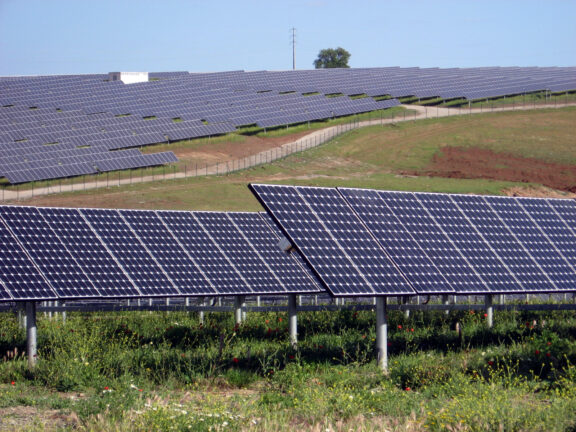Scaling up renewable electricity sources across the EU could reduce electricity generation costs, improve energy independence, and support the transition towards clean industry. Latest findings by European Environment Agency (EAA) show that departure from fossil fuels is accelerating even as some sectors, such as transport and heating, are still lagging behind.
The EEA report, which came out on Thursday, 26 June, claims that the European Union has already demonstrated its ability to shift away from fossil fuels, with electricity-sector CO2 emissions dropping significantly over recent decades. In comparison, progress in decarbonising heating and transport, where gas and oil consumption dominate, is slower.
Shifting to more renewables and electrification is an opportunity to reduce dependence on imported fossil fuels. That would lower wholesale electricity prices in the medium term, and reinforce Europe’s resilience – Leena Ylä-Mononen, EEA Executive Director
Improve regulation, coordination
The report argues that the energy crisis of 2022/2023, resulting from the Russian invasion to Ukraine, triggered a faster departure from fossil fuels. Those had been imported in large quantities from non-EU countries, including Russia. The EEA expects that, in the long term, this development will translate into lower consumer prices. In the shorter term, however, investment needs for a more flexible European grid and other national expenses are likely to partially offset the savings.
In order to reap all the benefits of renewables, the EEA report calls for more attractive fiscal and regulatory frameworks in order to boost near-term investments. The share of renewables in net electricity generation in the EU should thus rise to 77 per cent in 2030 (in 2024, it was 47 per cent).
Smart, inter-connected grids and storage solutions must scale up rapidly to maintain the energy system constantly in balance. To reduce regional disparities, get rid of inefficiencies, and maximise the resilience of Europe’s energy system. Cross-border cooperation on infrastructure and planning is also essential, the report says.
You might be interested
ETS2 key for faster progress in heating, transport
The second phase of the EU Emissions Trading System (ETS2)—currently subject to heated debates across EU institutions—is seen as a crucial economic instrument for addressing emissions in heating and transport. As to the latter, accelerating the adoption of electric vehicles, in combination with infrastructure for walking, cycling, and collective transport, will also drive both decarbonisation and consumer savings.
The ETS2 is to come in effect already in 2027. However, as the system may well trigger significant price increases, more than half of EU member states now urge the European Commission to consider a package of reforms to safeguard public acceptance ahead of the scheme’s planned 2027 launch.
EEA statistics clearly show that energy consumption, especially in transport, still heavily relies on (fossil) oil products—currently at around 90 per cent. Although no major decrease is likely by 2030, fossil fuels face a phase-out from the transport sector over the next decade (2030–2040), with the fossil share likely to drop down to around 30 per cent in 2040.
At the moment, passenger cars contribute around 50 per cent to direct CO2 emissions from transport in the European Union. This proportion is not going to change singnificantly, but transport emissions as a whole are to decrease dramatically by 2040—to a quarter of current levels.











